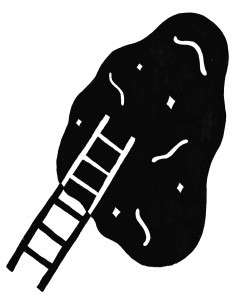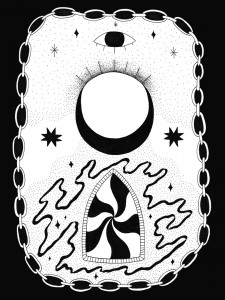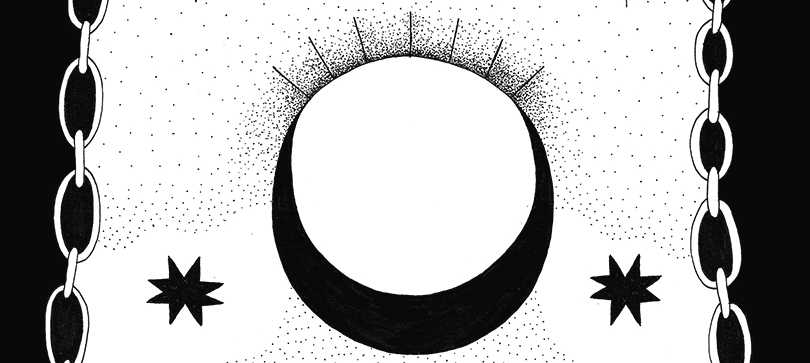It is impossible to attend Austin’s music industry festival, SXSW, without comparing the streets to your hometown of Vancouver and imagining all the possibilities. Every cafe, cupcake shop and patio is turned into a venue, sound is inescapable and you find a new stage installed in the alley behind your hotel while roaming for your morning coffee. The City of Austin is the real star of SXSW, with the desire to host 70,000 people and the regulatory flexibility to do it.
It is impossible to transplant this to vision to Vancouver, where the regulatory red tape and nimbyism make this explosion of healthy nightlife unfathomable. What would it take to nurture a vibrant night culture in Vancouver?
At SXSW, I attended the session “Why Every Music City Should Have A Night Mayor,” featuring the Night Mayors of Amsterdam and Groningen, both cities in the Netherlands. Over 20 cities in Europe now have Night Mayors, including Paris and Geneva, with cities such as London considering this Dutch invention. City officials spend their working hours in the sunshine, paying most of their attention to the activities of the daytime. The Night Mayor’s job is to represent and advocate for people and businesses that operate at night, while city officials are dreaming in their beds.
In the words of Amsterdam’s Night Mayor Mirik Milan, “How can you make good legislation if you don’t know what’s going on?”

In Amsterdam, the Night Mayor is the head of a not-for-profit that engages between the city and small business owners, funded half by the (day) Mayor’s office and half by night life establishments, operating like a BIA of the night. The Night Mayor represents the night economy for a cohesive lobby, working proactively for a safe and rich night life, overcoming people’s distrust of what happens in the dark.
Also on the panel was Don Pitts, Music and Entertainment Manager at the City of Austin, and Simon Lamb, COO of the Electric Daisy Festival. In Austin sound is the biggest problem, with condo development spurting up in cultural neighbourhoods attracted by the night life, then shutting down concerts with sound complaints. They implemented an ‘agents of change’ principle, where the new neighbour is responsible for paying for sound mitigation, and the incumbent is protected. Austin also issues outdoor sound licenses, will help you develop a ‘Sound Impact Plan,’ and has a universal phone app that will measure if the sound on your property is above the allowed 75 decibels.
In Austin, the witching hour is closing hour, when thousands of people spill out on the street. In Amsterdam, venues can apply for a 24 hour licence, choosing when they close their doors accommodating the needs of their clientele. People can stay out as long as they want to, entertained and not wandering around the city getting into trouble. Staggering closing times eliminates all the issues caused by dumping everyone onto the streets at the same time.
Responsible Hospitality Edmonton is a city department created in 2007 to deal with the same issues. On Whyte Avenue, one of the city’s cultural districts, there is no transit service past 1:30 am, and finding a cab is difficult. When the bars close, everyone is stuck trying to get home at the same time, creating an atmosphere ripe for fights, noise, public urination, and boorishness. RHE implemented a public transit pilot program, installed a public washroom, and works with business and club owners to create a safe and healthy environment for Edmonton’s cultural districts. The department works with the local business association, the police and the owners of night establishments to build cases for changes to city policies, programs and bylaws.

So, what’s happening here in Vancouver? In 2009, the City of Vancouver recognized the licensing hurdles impeding the operation of cultural spaces, and launched a regulatory review for live performance venues hoping to streamline the processes. Since then, the City unanimously voted on a new indoor arts event license, allowing cultural events in unconventional spaces and dramatically reducing the paperwork and regulatory hoop jumping. How did this happen?
The alternative arts venues in town have regular meetings, to discuss strategies, keep things safe, and collectively approach the City of Vancouver. Vancouver Art and Leisure and Red Gate Arts Society were main proponents of the indoor arts license.
“People need to be given the keys to the city, and not treated like children. People need to be able to decide when they go to bed,” asserts Vancouver Art And Leisure Executive Director Matt Troy. “It’s important in a healthy city and healthy economy to have people making use of the city and the infrastructure at different times. It’s just a better use of space.”
Many people view the night with distrust, but all sorts of industries operate at night, including technology companies, doctors, nurses, shift workers and bakers. Vancouver Art and Leisure has championed the fact that art doesn’t stop at 2 am, and cultural events invest in people, small businesses, and freedom of expression for our communities. And, despite the headway, there’s a long way to go.
“There’s a certain sense of anarchy among the City departments,” adds Matt Troy. “Everyone smiles and nods but from the back, you have someone from land use calling you and asking why your arts centre has an ATM and how that fits the zoning, and why do you have port-a-potties and how is that art?”
The reality is that change happens when people with common goals get together; it doesn’t matter whether this change happens is spearheaded by a city department, or by the community of the night making their voices heard. A Night Mayor is an ambassador, a catalyst and rallier of these voices.
In the words of Matt Troy: “I think a night mayor would be a great symbolic gesture on the part of the city of Vancouver to recognize the vitality and importance of nightlife and night time culture.”
x


